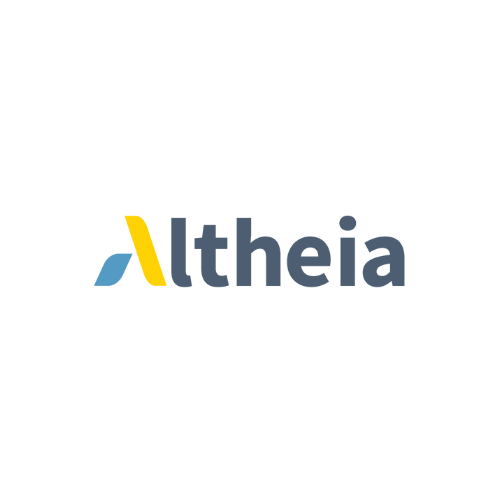From the desk of Lisa Fridland, Altheia’s COO.
I’ve been working with AI powered solutions for almost 15 years. In the beginning, the focus was on automation and trending to statistically support decision making as part of my operational roles. Later, I moved into working with predictive analytics and other more advanced AI solutions. From the beginning, the eventual power of AI and its ability to accelerate change was obvious. For me, it’s been an incredible journey to witness AI capabilities grow during this timeframe.
In today’s rapidly evolving healthcare landscape, the integration of Artificial Intelligence (AI) has emerged as a transformative force, promising a revolution in the way we approach medical care. With its potential to enhance accessibility, efficiency, and quality of healthcare services, AI is at the precipice of routinely being used to power inclusive solutions that cater to diverse populations. The intersection of AI and healthcare not only offers innovative tools but also presents a clear opportunity to address healthcare disparities and foster inclusivity.
Bridging Accessibility Gaps
AI-driven technologies have the capacity to bridge geographical and financial gaps in healthcare access. Telemedicine, empowered by AI, enables video and asynchronous consultations, diagnosis, and monitoring, providing healthcare access to underserved and remote communities. According to the NIH, telemedicine has shown substantial success in improving access to healthcare services, especially in rural areas where medical resources are scarce.
Personalized Care and Diagnosis
AI algorithms can analyze vast datasets to generate personalized treatment plans and predictive models. This supports the creation of tailored care plans that incorporate individual differences, including genetic predispositions, socio-economic factors, and cultural variations. For instance, AI-powered diagnostic tools like IBM Watson have exhibited accuracy in identifying diseases, thereby reducing misdiagnoses and ensuring equitable treatment for diverse populations.
It is in this space our product, Acuvia, firmly resides. Specifically, Acuvia will prioritize member outreach within a population based on not just diagnosed populations, but it will prioritize across all members based on risk profiles. That’s a major shift in approach for any entity doing case management and anyone seeking to manage population health and care intensity.
Enhancing Cultural Competence
This research paper from Johns Hopkins University discusses why cultural competency in healthcare is crucial for effective communication and understanding diverse patient needs. AI language processing tools equipped with natural language understanding capabilities can aid in translation services, enabling healthcare professionals to communicate with patients in their preferred language. Moreover, these tools can assist in recognizing cultural nuances, facilitating a more empathetic and culturally sensitive healthcare approach.
Challenges and Ethical Considerations
While AI holds immense promise in fostering inclusive healthcare, certain challenges and ethical considerations need to be addressed. Biases within AI algorithms, if left unchecked, can exacerbate existing disparities and perpetuate inequality. Therefore, it is imperative to continuously audit and refine these algorithms to ensure fairness and inclusivity across diverse demographics. It’s important to point out that those audits should be done by diverse teams of people and that the auditing team members aren’t consistently auditing the same algorithms. Equity and inclusion has to be a strategy at every step. Back in August, Jolly Nanda, our CEO and Founder, wrote a blog post talking about bias in AI and how to ensure that it’s not exacerbated.
Beyond bias, data privacy and security remain paramount. Safeguarding sensitive patient information is crucial to maintain trust in AI-enabled healthcare solutions. Comprehensive regulations and frameworks must be established to protect patient confidentiality and prevent misuse of healthcare data. From a practical application perspective, using the right tools at the right time and making sure those leveraging the tools are well-versed in their capabilities ensures that data is being used as disclosed.
Our product, Acuvia, directly addresses these challenges by leveraging clear communication about how data is being used, who can access it, and how it will be used in the creation of personalized risk profiles across our predictive models. Members choose to opt in, ensuring they’re in full control of their own data.
Future Prospects
As technology continues to advance, the synergy between AI and healthcare presents limitless possibilities. Collaborative efforts among healthcare professionals, policymakers, technologists, and ethicists can drive innovation while ensuring that AI solutions prioritize inclusivity and equity.
AI will be a catalyst for groundbreaking advancements, such as predictive analytics for early disease detection, personalized treatment regimens, and automated healthcare interventions. These innovations will not only revolutionize medical practices but also democratize healthcare, making it more accessible and equitable for all.
Acuvia, as we bring it to market, provides members and customers real-time risk assessments across 5 chronic diseases, which can be used to personalize intensity of care and enables members to intervene in their own predicted health outcomes. This begins to level the playing field across demographics because nothing is left open to interpretation – Acuvia provides both the risk profile and the corresponding expected accuracy of the prediction. Members can use this to discuss their health with their doctor, secure in the knowledge that they have a clear interpretation of the claims and clinical data being used to assess their health.
The integration of AI in healthcare holds tremendous potential to revolutionize the industry and change the way patient-centered care is delivered. As AI continues to evolve, the potential for inclusive healthcare solutions expands exponentially. The key lies in harnessing this technology responsibly and ethically, ensuring that it benefits everyone, regardless of background or circumstance.
In this era of technological innovation, the union between AI and healthcare stands poised to redefine the future of medicine—one that is inclusive, empathetic, and accessible to all.



